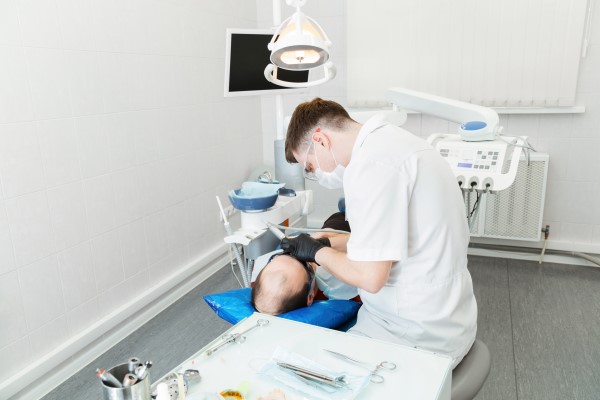Does Tooth Extraction Require Special Aftercare?
A dentist may recommend as a last resort when it is impossible to salvage a diseased tooth. Anyone who undergoes this procedure must follow aftercare instructions vigilantly to avoid additional oral complications.
When is tooth extraction necessary?
Although practicing good oral hygiene is essential to keep permanent teeth healthy, it may not be enough to prevent tooth extraction. Dentists may perform this procedure to treat the following conditions:
- Overcrowded teeth
- Periodontal disease
- Impacted teeth
- Broken teeth
After removing a tooth, a dentist will advise a patient about necessary aftercare to avoid infection and other complications.
What is the aftercare for a tooth extraction?
Dentists may prescribe painkillers to patients who have undergone tooth extractions, though post-procedure pain is often tolerable and usually subsides within three days. The overall healing process takes about two weeks and hinges upon preserving the blood clot that forms in the missing tooth's socket to protect the bone and nerve endings surround it.
Avoid smoking and taking aspirin
Smoking inhibits the healing process by constricting the blood vessels and preventing oxygen from reaching the wound site making infection possible. Additionally, dentists advise patients to avoid taking aspirin following tooth extraction. Aspirin is a blood thinner and could prevent the clotting process needed for healing.
Avoid strenuous activity
Immediately following a tooth's removal, a patient should avoid any movement or activity that can disrupt the clot's formation or cause the premature removal of any stitches. Patients should plan for a restful day of healing and talk with a dentist about when regular exercise and activities can be resumed.
Apply ice
Following a tooth extraction, patients may experience swelling. Applying an ice pack to the face over the extraction site as soon as possible after the procedure can minimize swelling.
Eat soft foods
Although maintaining a healthy diet can promote healing, it is essential to avoid various foods that can cause discomfort or disrupt the blood clot. Dentists instruct patients to eat soft foods, including eggs, yogurt, soup, applesauce, and pasta. Extreme temperatures and spices can cause significant discomfort.
Avoid brushing and rinsing
Brushing twice daily is part of a healthy oral care routine but should not occur within the first 24 hours following an extraction. Toothbrush bristles are too abrasive for sensitive tissue at the wound site, and the mouth movements involved in rinsing can compromise the blood clot. Routine oral care can resume by the second day after the extraction. Saltwater for rinsing promotes an alkaline environment that inhibits oral bacteria, but patients should allow the liquid to drip out of the mouth and not spit.
Take antibiotics
A dentist may prescribe antibiotics for complicated tooth extractions that require stitches. Patients who prematurely stop the course of medication risk infection.
Schedule a follow-up appointment
About a week following an extraction, patients should schedule a check-up appointment. The dentist will examine the socket and check the surrounding teeth for shifting.
Conclusion
Although dentists do everything possible to avoid tooth extractions, this procedure can sometimes improve a patient's oral health. Always follow instructions and schedule time off to rest following an extraction.
Request an appointment here: https://smilefreshdentalgrandblanc.com or call Smile Fresh Dental at (810) 515-7083 for an appointment in our Grand Blanc office.
Check out what others are saying about our dental services on Google: .
Related Posts
The idea of getting a wisdom tooth extraction is something that can spark fear in people because it does involve the removal of very embedded teeth; however, modern technology has made the procedure less painful. Additionally, the in-depth training that general dentists undergo ensures that the process will be efficient and quick.For the most part,…
For patients who have been suffering from a damaged or infected tooth, finally getting the tooth extracted can feel like a relief. However, bleeding after a tooth extraction can be worrisome and inconvenient. Before a patient undergoes a tooth extraction, it can be helpful to know what to expect in terms of bleeding.After a tooth…
When a patient is continually dealing with a severe toothache, getting a tooth extraction may be a solution. However, with the advancements in dentistry, there are chances of saving the tooth instead of removing it. Yet, sometimes a tooth extraction is preferable to dealing with constant pain or allowing an infection to spread further in…
You may need a wisdom tooth extraction already. Wisdom teeth often erupt between 17 and 21 years of age. Some people ignore their wisdom teeth. Others have no choice but to pay attention to theirs. In some cases, extracting the wisdom teeth could make or break dental health. If you want to know the signs…
